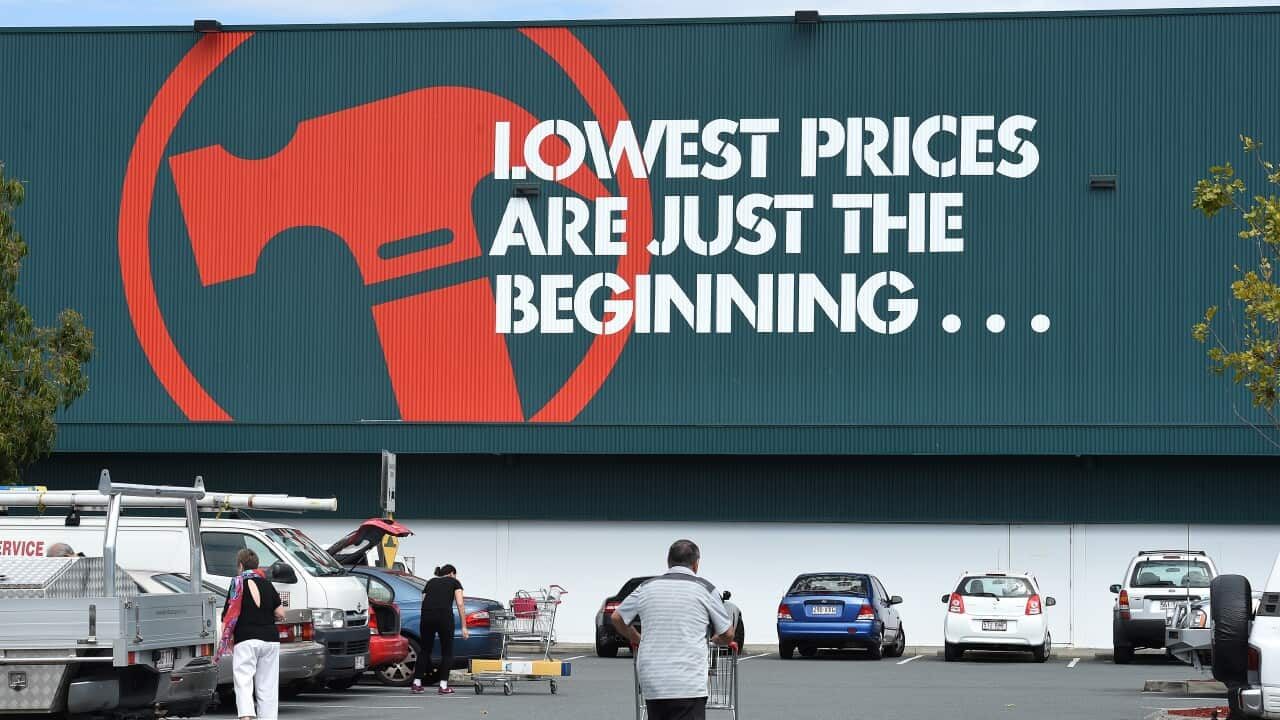Key Points
- There are fears Bunnings' immense gardening market power could be used to exploit suppliers and impact consumers.
- Bunnings controls about 70 per cent of Australia's greenlife sector, where plants are sold on to gardeners.
- Experts want it to sign the same code of conduct that regulates how supermarkets do business with suppliers.
Members of Australia's plant and greenlife industry are concerned that Bunnings' immense market power is negatively impacting suppliers and reducing options for consumers.
About 25,000 people are employed by Australia's greenlife sector, which covers businesses and organisations that cultivate seeds, plants, shrubs and trees to be sold on to gardeners. Bunnings controls about 70 per cent of the national greenlife market — prompting , and calls for greater scrutiny.
"If the government's minded to look at the behaviour of the big supermarkets, who we know dominate the grocery market in a duopoly, we say they should certainly look at the big box retailers of plants, especially Bunnings, which has a monopoly," Jo Cave, CEO of Greenlife Industry Australia (GIA), told SBS News.
GIA, the main industry body representing commercial growers of plants, is pushing for Bunnings to be included in the Food and Grocery Code of Conduct, which regulates how supermarkets and their suppliers do business, .
While it includes plants and flowers in its definition of groceries, the voluntary code is only signed by the major supermarkets.
That means Bunnings is "completely unregulated", according to Cave, and that Australia’s growers "have no protections whatsoever".
"Growers are scared of making a complaint. There's no safe place for a grower of plants to challenge or complain about something a big box retailer might have done," she said.
"We have many examples reported to us of growers who've lost orders and had to close their business because they might have spoken up or asked for a price increase and been frozen out by the big box retailers."
Former Australian Competition and Consumer Commission chair Professor Allan Fels said suppliers have good grounds for their concerns.
"Suppliers always have reason to be concerned when they're at the mercy of big players like Bunnings, and there needs to be a watch on their weak bargaining position not being exploited by Bunnings," Fels said.
There are also concerns that the retailer's market power could be having impacts beyond the industry sector.
Paul de Jong owns a small greenlife business, Canberra Colour, which grows 100,000 seedlings of hundreds of different plant varieties at a time. He says the market has changed a lot in the past 30 years, and that's limiting options for consumers.
"A lot of small retailers have disappeared, and a lot of the product is just going to big retailers now they sort of own most of the market," he said.
"Because the industry has shifted to bigger productions, [and] there's not as many growers now, it tends to limit the diversity in production, so often you'll get the same things everywhere."
In a statement to SBS News, Bunnings managing director Mike Schneider said the company strives to cultivate mutually beneficial relationships with its greenlife suppliers.
"We have longstanding relationships with thousands of suppliers, and work hard to build longstanding win-win partnerships. We have robust processes in place as part of our trading agreements to ensure those relationships are fair and transparent, and have a range of avenues available for suppliers to raise their concerns, including an anonymous reporting service," Schneider said.
He also said Bunnings is not currently considering becoming a signatory to the Food and Grocery Code of Conduct.
"Given the very broad range of products and services Bunnings offers to both consumer and professional customers, as well as the diverse and highly competitive market in which we operate, we don't feel that the Food and Grocery Code of Conduct, which was introduced to address concerns in the supermarket industry, is specifically relevant to our business as currently drafted," he said.
Cave from GIA said Australians expect more from the retail giant.
"Bunnings is rated as the nation's most trusted brand … But I do wonder what consumers would say if they knew how Bunnings treated its suppliers," she said.
"We know that Australians dislike corporate greed in big companies. We feel corporate greed is in the mix here.
"Bunnings says it stands for integrity and respect; what we would like to see is those values demonstrated, and if I was in charge of Bunnings I would offer to sign the code of conduct to demonstrate that 'I'm living by those values and want to do the right thing by my suppliers.'"




